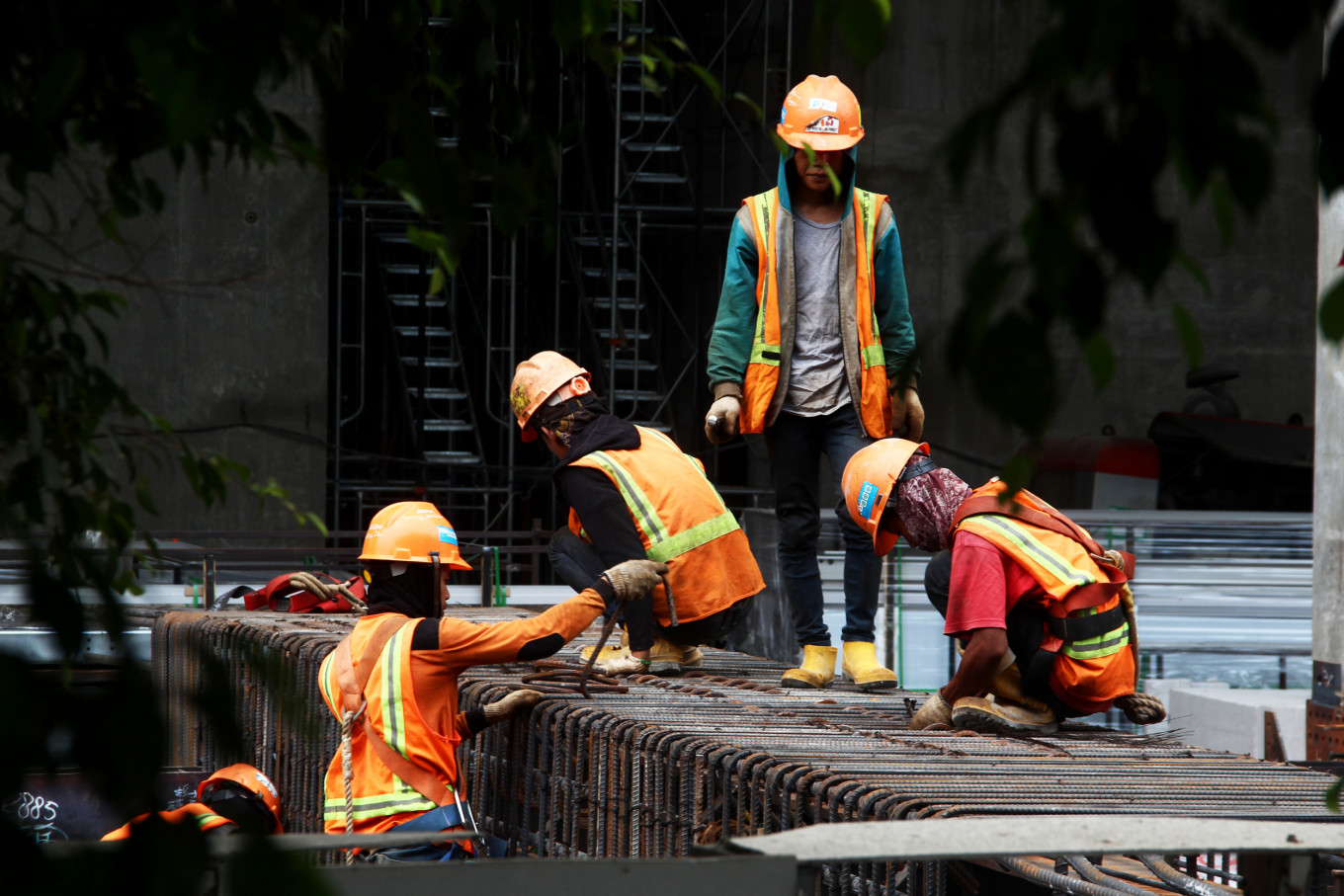Popular Reads
Top Results
Can't find what you're looking for?
View all search resultsPopular Reads
Top Results
Can't find what you're looking for?
View all search resultsThe 2024 state budget aims to encourage inclusive, sustainable economic growth
Change text size
Gift Premium Articles
to Anyone
T
he state budget for fiscal year 2024 was passed through Law No. 19/2023 on Oct. 16. In that law, the government targets state revenue of Rp 2,802.29 trillion and state expenditure of Rp 3,325.12 trillion, making for a deficit of Rp 522.83 trillion or around 2.29 percent of Gross Domestic Product (GDP).
On the state expenditure side, the budget is divided into the central government expenditure budget with an allocation of Rp 2,467.53 trillion and the regional transfer budget of Rp 857.59 trillion.
The budget will be optimized to support the fiscal policy theme of the 2024 state budget, namely “Accelerating an Inclusive and Sustainable Economic Transformation”. For this reason, government spending policies are directed at supporting the acceleration of economic transformation, strengthening the quality of spending (spending better), encouraging targeted subsidies and encouraging economic growth, equitable development and job creation.
To ensure that the 2024 state budget can fulfill its role, it has several areas of focus, including an allocation for education to improve quality and competitive human resources; a health allocation to accelerate the reduction of stunting and continue the transformation of the health system; a social protection allocation to accelerate poverty reduction, improve welfare and long-term human resource development; a subsidy allocation to stabilize prices, maintain purchasing power and support micro, small and medium enterprises (MSMEs); an infrastructure allocation to support economic transformation and equitable development; a food security allocation to increase availability, access and stabilize food prices; and a law and human rights allocation to support election security and the development of the new national capital, Nusantara.
In the midst of global uncertainty, including continuing geopolitical crises and slowed world economic growth, which has had an impact on decreased global demand, including for Indonesian products, the implementation of the 2024 state budget will be full of challenges.
The 2024 state budget must still be able to fulfill its shock absorber role to withstand the effects of global economic shocks and support domestic economic growth. Therefore, the active role of all stakeholders is needed to improve the acceleration and quality of budget implementation.
In line with this, the director general of the treasury at the Finance Ministry, Astera Primanto Bhakti, said, "In the midst of unstable global economic and geopolitical dynamics, hard work and synergy from all stakeholders are needed to realize quality of spending (spending better) so that it can encourage economic growth and the welfare of the Indonesian people."
In the economic theory of aggregate demand, government spending is one component of GDP. As such, additional government spending will directly increase Indonesia's economic output. However, more important than this direct role is the multiplier effect of government spending to drive the economy.
In this context, the acceleration of government spending is important so that the benefits of the state budget can be felt more quickly by the community. For this reason, the acceleration of state spending must be carried out from the beginning of the fiscal year and the achievement of outputs in accordance with the set targets must be guarded through the following strategies:
First, the quality of activity planning must be improved, followed by discipline in implementing the plan. To implement the state budget, each ministry and institution needs to plan activities followed by a plan for withdrawing funds and achieving outputs periodically. The activity plans, and especially their execution, are expected to spread evenly throughout the year and not accumulate at the end of the year.
Second, the process of government procurement of goods/services (PBJ, Pengadaan Barang/Jasa) must be accelerated. Things that can be done to accelerate procurement include selecting goods/services providers before DIPA is issued, or what is commonly referred to as an early auction. This is done so that at the beginning of the year, the contract is ready and activities can be implemented immediately. In addition, the State-owned Enterprises Ministry is expected to immediately implement PBJ, which does not require an auction mechanism, considering that its execution is simpler and does not require a long process.
Furthermore, the government needs to ensure the accuracy of data on social assistance recipients and accelerate the distribution of social assistance expenditure to the right communities. Social assistance expenditure, by the provisions, is given to the poor or those incapable of protecting themselves from the possibility of social risks, as well as to improve the economic capacity and welfare of the community. Accuracy of data on social assistance recipients is needed to keep government spending on target. In addition to the accuracy of recipients, the acceleration of distribution is also crucial so that the purchasing power of the eligible community is maintained throughout the year.
(Courtesy of Finance Ministry)For the accelerated efforts made by all ministries and institutions, the Finance Ministry always encourages and conducts monitoring and evaluation. One-on-one meetings are held with ministries and state institutions to identify obstacles, find solutions and formulate follow-ups on problems in the implementation of the State Budget.
In addition to that, budget execution performance is also measured to improve the quality of planning to encourage acceleration, to ensure the fulfillment of budget execution governance and to encourage the achievement of targeted outputs. Furthermore, to support the use of domestic products, the Finance Ministry also oversees the recording of information on the Increased Use of Domestic Production (P3DN) for state budget expenditures.
Efforts to accelerate and improve the quality of spending are also carried out through the simplification of various financial management business processes, which are carried out through modernization and digitization of budget execution, among other methods. These modernization and digitization efforts will continue to be improved in the future by creating an integrated financial management ecosystem that includes planning, implementing, monitoring and evaluating, as well as financial and performance reporting.
Various innovations in simplifying the financial management business process are expected to make it easier for ministries and state institutions to implement the state budget so that the focus of performance can be shifted to achieving performance targets and improving the quality of spending. The quality of spending is not only measured by the high level of realization/absorption, but also by the extent to which government spending is able to produce the specified outputs and outcomes.
To realize accelerated and evenly executed spending in quality throughout the year requires synergy from all stakeholders. The awareness and commitment of ministries and state institutions in implementing quality spending as well as continuous innovation in state financial management by the Finance Ministry are crucial for the achievement of a healthy and sustainable state budget and can provide optimal leverage on the national economy and public welfare.
"The state budget has worked hard so far and will continue to work hard in 2024 to face the challenges of economic dynamics. The state budget must also be an instrument of inclusive economic transformation and sustainable growth. To be able to realize this, many things are determining factors. Efforts to get there must be carried out together by various parties and spread evenly throughout Indonesia. The state budget must also be able to maintain its health so that it can be used as an instrument so that the ideals of Pancasila can be achieved," said the director general of the treasury.
Source: The Finance Ministry












